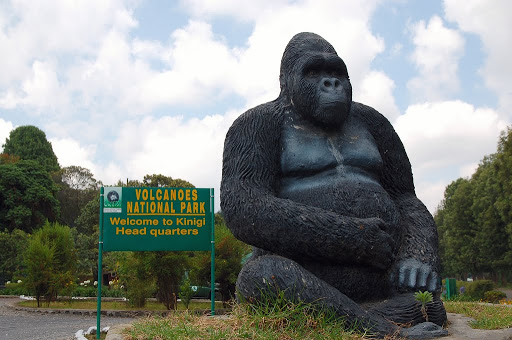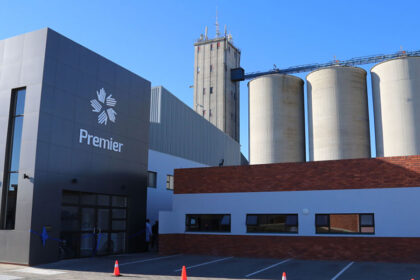At a Glance
- Gorilla trekking permits directly fund park protection and local community projects in Rwanda.
- Eco-lodges blend comfort and sustainability, reflecting Rwanda’s long-term commitment to conservation.
- Tourism revenue supports anti-poaching patrols and reforestation within Volcanoes National Park.
Volcanoes National Park in northern Rwanda is where gorilla trekking meets luxury travel. On the misty slopes of the Virunga Mountains, visitors experience one of Africa’s most unforgettable encounters, meeting mountain gorillas in their natural habitat.
Each permit and lodge stay supports Rwanda’s pioneering conservation model, turning eco-luxury tourism into a lifeline for both wildlife and the local communities that protect them.
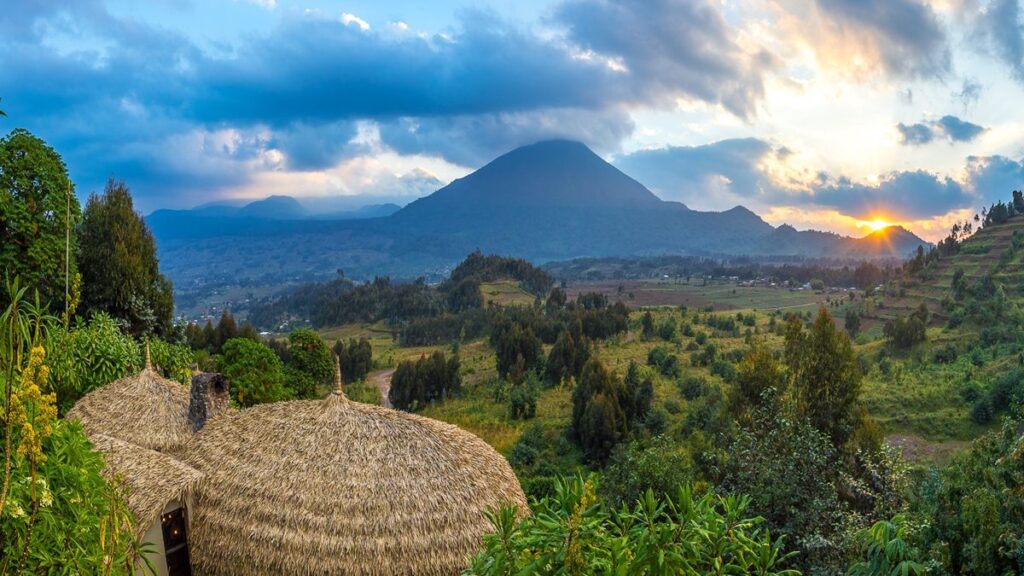
A legacy in the mountains
Conservation here stretches back nearly a century. Set in the Virunga massif, the park shelters several gorilla families long monitored by researchers and protected by rangers.
Years of joint efforts among scientists, wardens and residents have helped the species recover from the edge of extinction. Rwanda limits the number of daily trekking permits to reduce environmental strain, with each fee funding ranger patrols, habitat restoration and local development. The idea is simple: fewer visitors, greater impact.
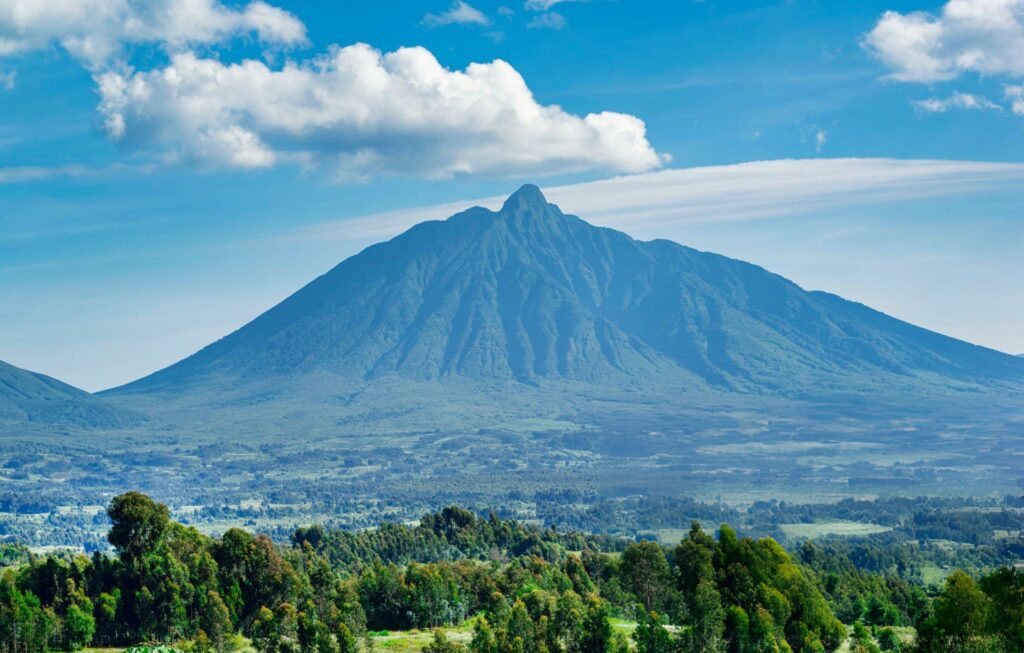
The approach: where land meets sky
The journey begins in Musanze, where paved roads climb through farmland before giving way to towering volcanoes, Karisimbi, Bisoke, Muhabura, Gahinga and Sabyinyo. The air cools and thickens with mist as villages fade behind the ridges. Inside the park, encounters are deliberately quiet and brief, designed to protect both the gorillas’ peace and the visitor’s sense of wonder. It feels less like a tour and more like a conversation with the wild.
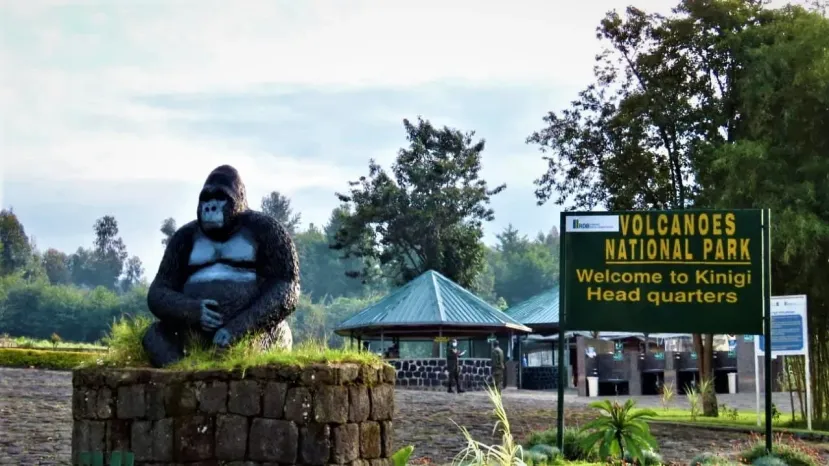
Lodges with a sense of place
Accommodation around the park mirrors its conservation ethos. Lodges such as &Beyond’s Bisate Lodge and One&Only Gorilla’s Nest blend naturally into the terrain with thatched roofs and handwoven details. They are small, reflective spaces, more retreat than resort. Evenings often end by the fire with soft conversation, while mornings begin with mist drifting through the trees. Comfort here feels rooted, not imported.

Dining with roots and purpose
Meals draw on what the land provides. Local farmers and cooperatives supply cassava bread, vegetables grown in volcanic soil, and tilapia from nearby lakes.
Kitchens pair Rwandan staples with global influences, serving them on terraces overlooking the forest.
The impact extends beyond the plate: tourism revenue helps fund anti-poaching programs and village initiatives that keep conservation viable.
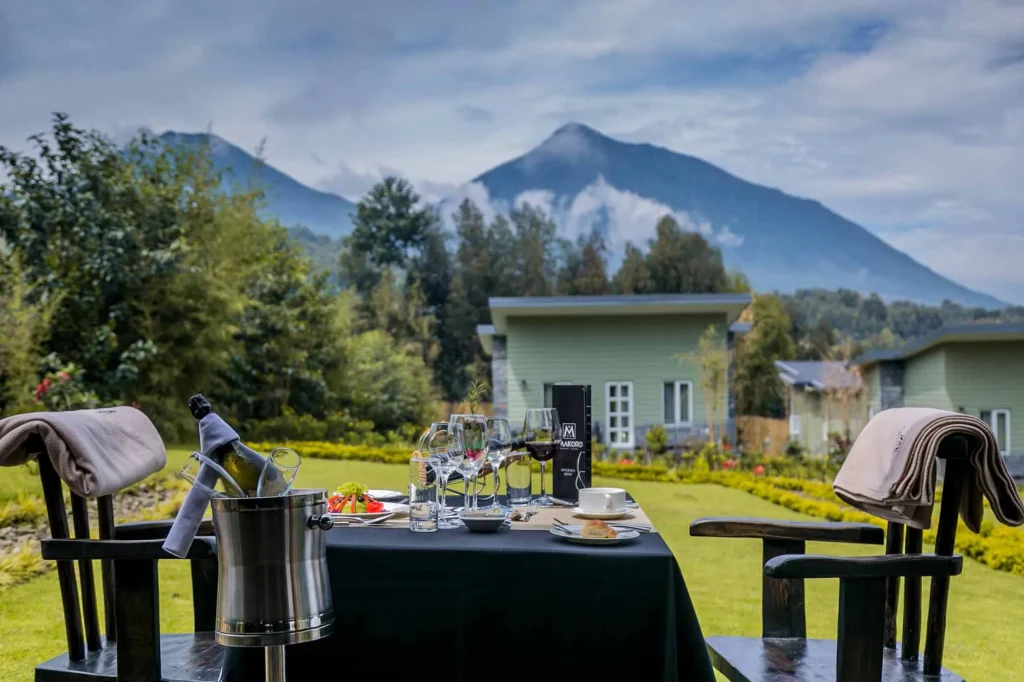
A shared promise
Volcanoes National Park stands as proof that luxury and responsibility can coexist. Each permit sold, each room booked, strengthens a fragile ecosystem and the lives linked to it. In the quiet of its cloud forests, Rwanda offers more than an escape, it offers renewal, for both the traveler and the land itself.


